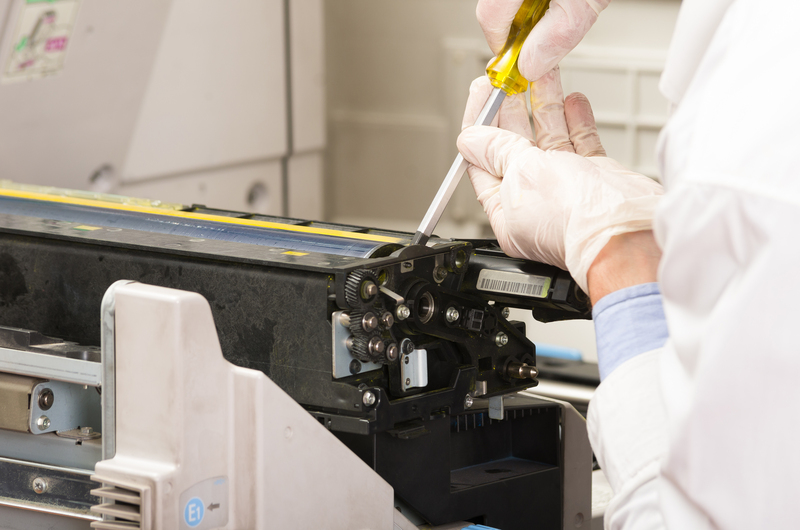Enhancing Workplace Recycling Techniques
Posted on 07/12/2024
Recycling at the workplace is more than just a noble effort; it's a crucial aspect of environmental sustainability that can also lead to cost savings and improved workplace culture. As more companies recognize their environmental responsibilities, enhancing workplace recycling techniques becomes essential. This article delves into effective strategies, the pros and cons, valuable tips, key takeaways, and a conclusive overview to help you amplify your company's recycling efforts.
Understanding the Importance of Workplace Recycling
Workplace recycling is pivotal for both environmental and economic reasons. It conserves natural resources, reduces pollution, saves energy, and minimizes the volume of waste ending up in landfills. Besides, recycling can come with financial benefits through reduced waste management costs and potential revenue from recyclable materials.

Effective Recycling Techniques
1. Conduct a Waste Audit
A thorough waste audit is the first step towards an effective recycling program. By understanding the types and amounts of waste your workplace generates, you can tailor your recycling efforts to address the most significant waste streams. Analyze data regularly to identify trends and areas for improvement.
2. Implement Separate Bins
Equip your workplace with clearly labeled bins for different types of waste--such as paper, plastics, metals, organics, and general waste. Place these bins strategically around the office to encourage consistent usage. Ensure that the bins are emptied regularly to prevent overflow and cross-contamination.
3. Educate and Engage Employees
Education is key to any successful recycling program. Organize regular training sessions, workshops, and informational campaigns to educate employees about recycling practices and the importance of their participation. Use engaging materials like posters, email newsletters, and intranet postings to keep recycling top of mind.
Leveraging Technology
4. Utilize Digital Tools
From apps that remind employees to recycle to digital platforms that track recycling rates and provide feedback, technology can significantly enhance recycling efforts. Implementing such tools can help monitor performance and keep everyone aligned with your recycling goals.
5. Smart Disposal Systems
Invest in smart disposal systems that can sort waste automatically. These systems can help reduce contamination, ensure proper sorting, and make recycling easier for employees. While the initial investment might be high, the long-term benefits can justify the cost.
Encouraging Eco-Friendly Practices
6. Promote Reusables
Encourage the use of reusable items such as water bottles, coffee mugs, and shopping bags within the workplace. Reducing the reliance on single-use plastics can significantly cut down waste and enhance your recycling program's effectiveness.
7. Partner with Recycling Companies
Establish partnerships with professional recycling companies to ensure that your waste is processed correctly. These companies can offer specialized bins and waste collection services tailored to your recycling needs.
Pros and Cons of Enhancing Workplace Recycling
Pros:
- Reduces environmental impact
- Can lead to cost savings in waste management
- Improves workplace morale and culture
- Enhances corporate social responsibility image
Cons:
- Initial investment and ongoing costs
- Time and effort required for training and monitoring
- Potential for contamination if not properly managed
Practical Tips for Enhancing Recycling
- Regularly update employees about recycling achievements and goals.
- Introduce a rewards system to encourage good recycling habits.
- Conduct regular reviews to assess and refine your recycling program.
- Make recycling bins more accessible than general waste bins.
- Use signage that clearly indicates what can and cannot be recycled.

Key Takeaways
- Comprehensive waste audits are crucial for tailoring recycling programs.
- Education and engagement are key in fostering a recycling culture among employees.
- Leveraging technology can enhance the efficiency of recycling efforts.
- Encouraging the use of reusables and partnerships with recycling companies can support the initiative.
- Regular assessments and feedback mechanisms can drive continuous improvement.
Conclusion
Enhancing workplace recycling techniques requires a multifaceted approach that includes understanding your waste, educating and engaging employees, leveraging technology, and promoting eco-friendly practices. While there are challenges, the benefits far outweigh the drawbacks. By adopting strategic recycling practices, your company can make a significant positive impact on the environment, reduce costs, and build a culture of sustainability that resonates with employees and stakeholders alike.

